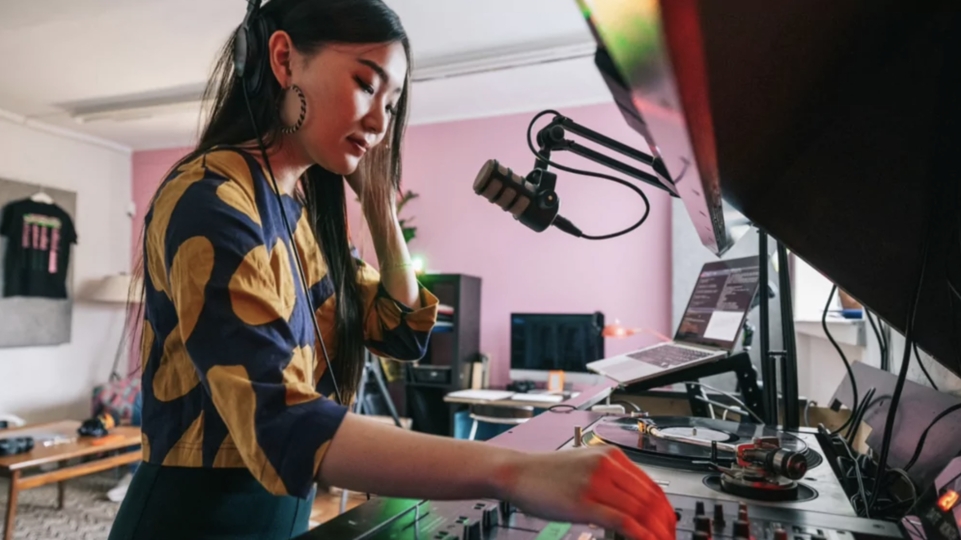UK government rejects Misogyny In Music report recommendations on gender equality
The decision has drawn sharp criticism from industry figures and advocacy groups

The UK government has rejected the recommendations proposed by the Misogyny In Music report, dashing hopes for urgent progress in gender equality within the music industry.
Published in January, the report - which was spearheaded by the Women and Equalities Committee (WEC) - spotlighted the pervasive misogyny and discrimination faced by women in music. It depicted an industry entrenched in a "boys' club" culture, where sexual harassment, unequal pay and limited opportunities persist.
Among the WEC's recommendations were protections for people facing intersectional inequality, a duty on employers to protect workers from sexual harassment by third parties, and an investment in diversity schemes by the wider industry and government, particularly in male-dominated sectors such as sound engineering, production and A&R
Despite urgent calls for action, the government's response fell short of implementing the report's suggested reforms.
The NME reports that while the government's response said that “everyone should be able to work in the music industry without being subject to misogyny and discrimination," the Department of Culture, Media and Sport has confirmed it won’t take any of the recommended actions.
The decision has drawn sharp criticism from industry figures and advocacy groups alike.
Deborah Annetts, CEO of the Independent Society of Musicians (ISM), expressed disappointment, stating that the government's inaction was a missed opportunity for meaningful change. "The Misogyny in Music report should have been a moment of immediate and lasting change for the music industry,” said Annetts. “The report laid bare the incredibly serious problems the sector has and the entirely reasonable steps Government should take the rectify them.
"For the Government to choose not to make music safer for women is painfully disappointing, if sadly not surprising. The brilliant women who make our music industry what it is deserve better."
Safe Gigs For Women echoed Annetts’ sentiment, condemning the government's rejection as "inexcusable" and emphasising the profound impact of sexual violence on individuals' lives. In a statement, the intersectional organisation said: “We are saddened to read that this government has rejected the Misogyny in Music report published in January by the Women and Equalities Committee. Sexual violence changes lives – inaction is inexcusable.”
In 2023, the Musicians Union (MU) submitted evidence to the WEC inquiry into Misogyny in Music in the hope of tackling some of the issues women face working in the music industry. It helped to form part of the Misogyny in Music Report.
In a new statement, Naomi Pohl, General Secretary of the MU, emphasised the urgent need for an updated legislative framework and increased support for diversity initiatives. “The MU are deeply disappointed in the Government’s response to the Misogyny in Music Report and shocked that the Select Committee’s recommendations have been rejected in this way,” said Pohl.
“Women from across the music industry have bravely shared their experiences of misogyny, sexual harassment and abuse as well as other very real barriers they face whilst working in the industry. The Government had an opportunity to listen and learn from those lived experiences and implement the changes that the WESC report recommended. Instead, the Government decided that women’s safety is not a priority. Again, survivors are not being listened to.”
In a report by Euronews, WEC committee chair Caroline Nokes MP is quoted as saying: “Ministers are letting women down with their feet dragging over NDAs. We have had platitudes and reassurance, but still no action despite evidence that the use of NDAs is rife, in far too many sectors, and they are being used to protect perpetrators and silence victims.”
The government's stance comes despite mounting evidence and testimonies, including DJ Annie Mac's assertion of a "tidal wave" of sexual abuse cases within the industry.
With the government's refusal to act, the music industry faces a critical juncture, where the call for gender equality and safety for all remains unanswered. As stakeholders rally for change, the spotlight remains on the industry's culture and the imperative for meaningful reform.
The news comes a month after a new report revealed that half of the women in the music industry have experienced some form of discrimination.
Last year, Saffron, another non-profit organization dedicated to advancing gender equality within the music industry, launched a fundraiser to help it continue its work.





